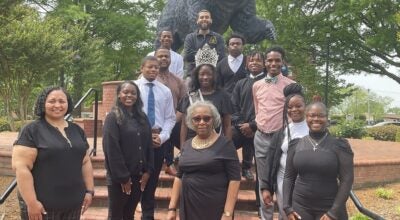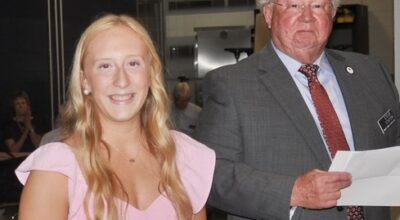Judge says state can’t give grants for students going to private schools
Published 12:00 am Saturday, February 22, 2014
A judge ruled Friday to block a law that would have provided tax-funded financial assistance for North Carolina students to attend private schools.
Wake County Superior Court Judge Robert Hobgood decided that the grants, which would have awarded up to $4,200 to approximately 2,400 students who qualify for free or reduced lunches, violated the state’s constitution.
The North Carolina Opportunity Scholarship program was passed in July 2013 and had multiple lawsuits brought against it.
While local private school administrators didn’t expect to be affected very much, they were in support of the voucher program.
“These kids would never have the ability to be a part of a private school setting,” said Sacred Heart Catholic School Principal Frank Cardelle.
Sacred Heart, like many of the other small private schools, seeks to foster a unique environment. Sacred Heart is a “very small, close-knit, family-oriented school,” he said.
Maria Lowder, executive director of North Hills Christian School, said her school offers a Christ-centered education, something a public school isn’t going to offer.
She added that North Hills is more able to structure programs to provide an individualized learning experience for each student.
“We can offer what the student needs,” she said.
Both Cardelle and Lowder said students would have had to go through the application process and would have been held to the same standards as any other student.
Public school administrators, however, were vehemently opposed to the Opportunity Scholarship program.
The public schools are the “backbone” of continuing our democracy, said Rowan-Salisbury Board of Education Chairman Dr. Richard Miller. “I will not support anything that undermines that.”
Miller fears that the voucher program would have left public schools with no funding and would take away many of the brightest students.
“I think the private school has its place, but I don’t think it should ever expect to be subsidized by tax dollars. I think it’s wrong,” said Vice Chairwoman Kay Wright Norman.
“Every child is welcome” in public schools, despite race, socioeconomic background or religion, she said.
Those who challenged the scholarships were worried that private schools aren’t held to the same level of accountability as public schools.
Private schools aren’t required to administer state mandated testing, and public officials don’t oversee the curriculum. In addition, private schools wouldn’t have to undergo financial review unless they received more than $300,000 in grant money.
“This type of program has been ruled as constitutional in both state and federal courts across the nation. Our hope is that the Opportunity Scholarship Program is reinstated as soon as possible,” John Dudley, The Americans for Prosperity Issues’ state director said in a press release.
The judge had refused to dismiss the lawsuits during a hearing Monday.
According to a lawyer representing parents who want the grants, an appeal has been planned.
These opportunity scholarships were intended to be used for both tuition and fees. To be eligible, students had to be enrolled in public school during the 2013-14 school year and live in a household whose income level couldn’t exceed 225 percent of the federal poverty level.
More than 4,000 families have applied for the grants, which would have been awarded March 1 and would have taken effect during the 2014-15 school.
The Associated Press contributed to this article.





